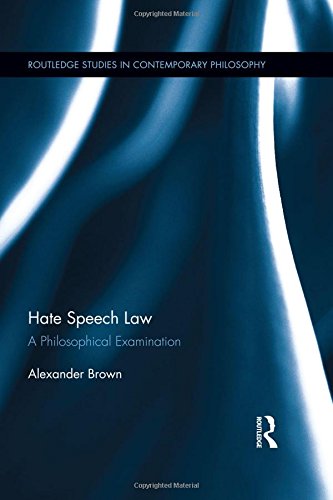

Most ebook files are in PDF format, so you can easily read them using various software such as Foxit Reader or directly on the Google Chrome browser.
Some ebook files are released by publishers in other formats such as .awz, .mobi, .epub, .fb2, etc. You may need to install specific software to read these formats on mobile/PC, such as Calibre.
Please read the tutorial at this link: https://ebookbell.com/faq
We offer FREE conversion to the popular formats you request; however, this may take some time. Therefore, right after payment, please email us, and we will try to provide the service as quickly as possible.
For some exceptional file formats or broken links (if any), please refrain from opening any disputes. Instead, email us first, and we will try to assist within a maximum of 6 hours.
EbookBell Team

5.0
108 reviewsHate speech law can be found throughout the world. But it is also the subject of numerous principled arguments, both for and against. These principles invoke a host of morally relevant features (e.g., liberty, health, autonomy, security, non-subordination, the absence of oppression, human dignity, the discovery of truth, the acquisition of knowledge, self-realization, human excellence, civic dignity, cultural diversity and choice, recognition of cultural identity, intercultural dialogue, participation in democratic self-government, being subject only to legitimate rule) and practical considerations (e.g., efficacy, the least restrictive alternative, chilling effects). The book develops and then critically examines these various principled arguments. It also attempts to de-homogenize hate speech law into different clusters of laws/regulations/codes that constrain uses of hate speech, so as to facilitate a more nuanced examination of the principled arguments. Finally, it argues that it is morally fitting for judicial and legislative judgments about the overall warrant of hate speech law to reflect principled compromise. Principled compromise is characterized not merely by compromise over matters of principled concern but also by compromise which is itself governed by ideals of moral duty or civic virtue (e.g., reciprocity, equality, and mutual respect).